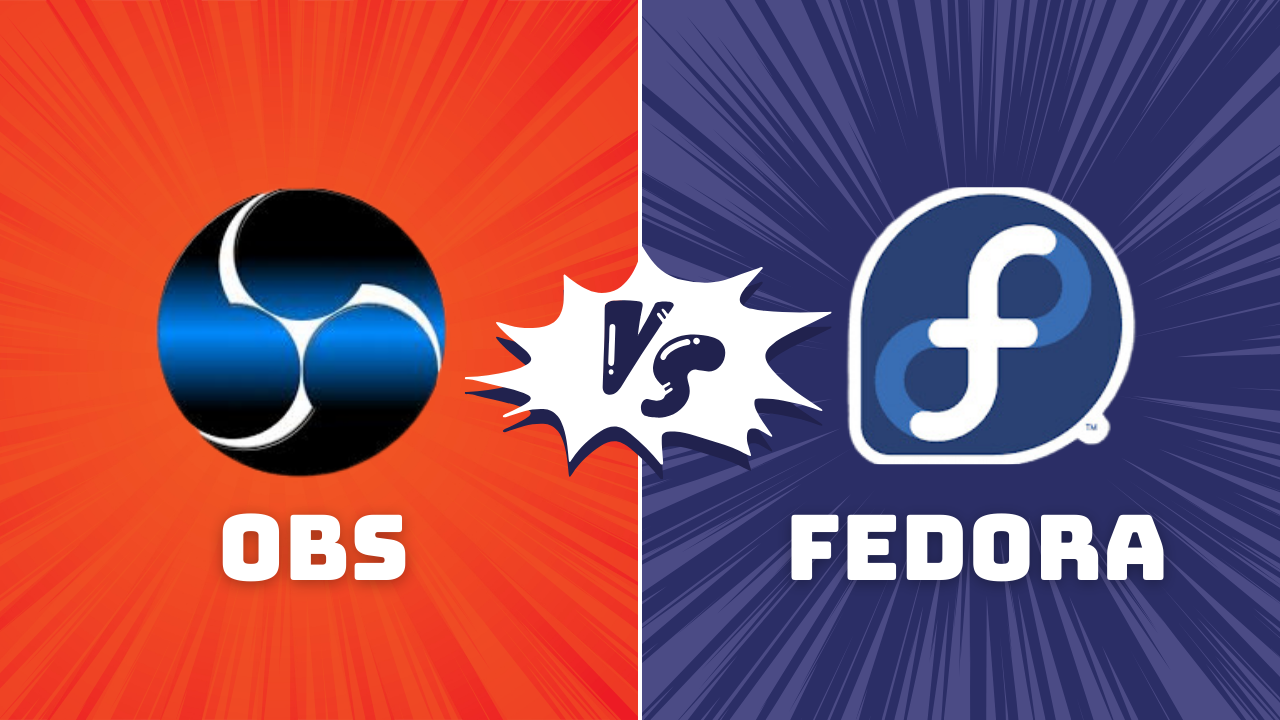OBS Studio Threatens Legal Action Against Fedora Linux in Branding Battle
 9th Tech
9th TechTable of contents

Introduction
In recent weeks, tensions between OBS and the Fedora Linux distribution around enforcing trademarks, downstream packaging responsibilities, and user experience in open-source ecosystems have flared up again. The complaint in question concerns Fedora's unofficial Flatpak package of OBS Studio which, as the OBS developers argue, is misrepresenting their brand, therefore delivering a sub quality experience. This article unravels the technical and philosophical tensions involved, drawing parallels to the many historical open-source disputes and what this means for the future of Linux packaging.
Historical Context: The “Iceweasel” Saga between Mozilla and Debian.
To comprehend the present state of affairs, it would be nice to remember one of the previous similar battles in the early 2000’s. Back then, stringent trademark controls were put in place by Mozilla for the use of its browser Firefox, only for Debian-a distribution renowned for its strong principles about free software-to refuse compliance by evidently not meeting parts of these trademark clauses; which mandated use of official branding on unmodified binaries. What followed? Debian renamed their Firefox fork to Iceweasel, stripping it entirely from Mozilla trademarks.
Funny enough this "hostile fork" persisted until 2017 when Debian finally agreed to package Firefox with the official branding. The moral: Trademark enforcement in open source is messy—and without compromise, downstream projects risk fragmenting ecosystems.
The Fedora-OBS Conflict: Broken Packages and Branding Disputes
Fast-forward to 2024, and history is repeating itself, only this time between Fedora and OBS Studio.
The Problem: A Flatpak Package
Fedora maintains its own Flatpak repository, separate from Flathub; a mainly community driven ecosystem and the main source for Flatpak apps.
The Fedora Flatpak for OBS Studio is not officially endorsed by the OBS Project. However, it is shown in the Fedora Software center always alongside Flathub packages, often favored with higher priority (one would even think it’s the official package).
Users install the Fedora’s OBS Flatpak without knowing that it's not an official build. When they experience bugs (for instance, broken browser docks, missing API keys for Twitch/YouTube integration), they're reporting the problem to the developers of OBS Studio and not to Fedora.
OBS Studio’s Frustrations
The Fedora package lacks important features missing from the official build available from Flathub; for instance, streaming service integrations, which require API keys.
According to OBS developers, the Fedora package is probably misusing their trademarks (name, logo) while offering inferior quality product which damages their reputation.
Months of unmet complaints later, on the 21st of February in 2025, OBS warned the Fedora project formally, demanding it remove all OBS branding or face legal action.

Why Flatpak Prioritization Matters
Flatpak’s design allows multiple repositories (“remotes”) to coexist. However, Fedora’s decision to prioritize its own repo over Flathub has unintended consequences:
User Confusion: Casual users can’t distinguish between Fedora’s repo and Flathub. Both deliver Flatpaks via the same interface (GNOME Software).
Maintainer Burden: Upstream projects like OBS waste resources troubleshooting issues caused by unofficial builds.
Fragmentation: Competing packages dilute developer focus and user trust.
Fedora’s Response
After OBS’s legal threat, Fedora’s maintainers quickly updated the package description to warn users about its limitations and EOL’d (end-of-life) the build. However, OBS wants the package removed entirely.
Although the same developer from OBS on the GitLab issue made a comment on YouTube stating the initial response from Fedora prior to the threat was rather provocative which pushed them to the wall as they did not plan to have such an altercation, hence why they now want out of the Flatpak ecosystem entirely.

Broader Implications for Open Source
Trademark Enforcement: Projects like OBS are forced to protect their brand to avoid support chaos. This pits open-source ideals (freedom to fork) against practical realities like UX.
Downstream Responsibility: Should distributions respect upstream packaging preferences? Fedora argues downstream customization adds value, but when does it cross the line?
The Rise of Flathub: As the de facto standard for Flatpak, Flathub’s dominance raises questions about distro-specific repos’ relevance.
Lessons from the Conflict
Transparency is Non-Negotiable: Unofficial packages must clearly disclose their origins.
Respect Upstream Preferences: Distributions should defer to official builds unless given explicit consent.
Legal Action is a Last Resort: OBS’s nuclear option reflects years of frustration—a cautionary tale for open-source governance. #FAFO
Conclusion
The Fedora-OBS clash highlights a recurring tension in open source: balancing distribution autonomy with upstream integrity. While Fedora’s Flatpak experiment aimed to provide curated apps, its execution inadvertently harmed a popular project. As Flatpak adoption grows, distributions must prioritize collaboration over control—or risk more “hostile forks” and legal battles.
Developers, meanwhile, should heed the lesson: in open source, history repeats itself when communication breaks down.
Subscribe to my newsletter
Read articles from 9th Tech directly inside your inbox. Subscribe to the newsletter, and don't miss out.
Written by
